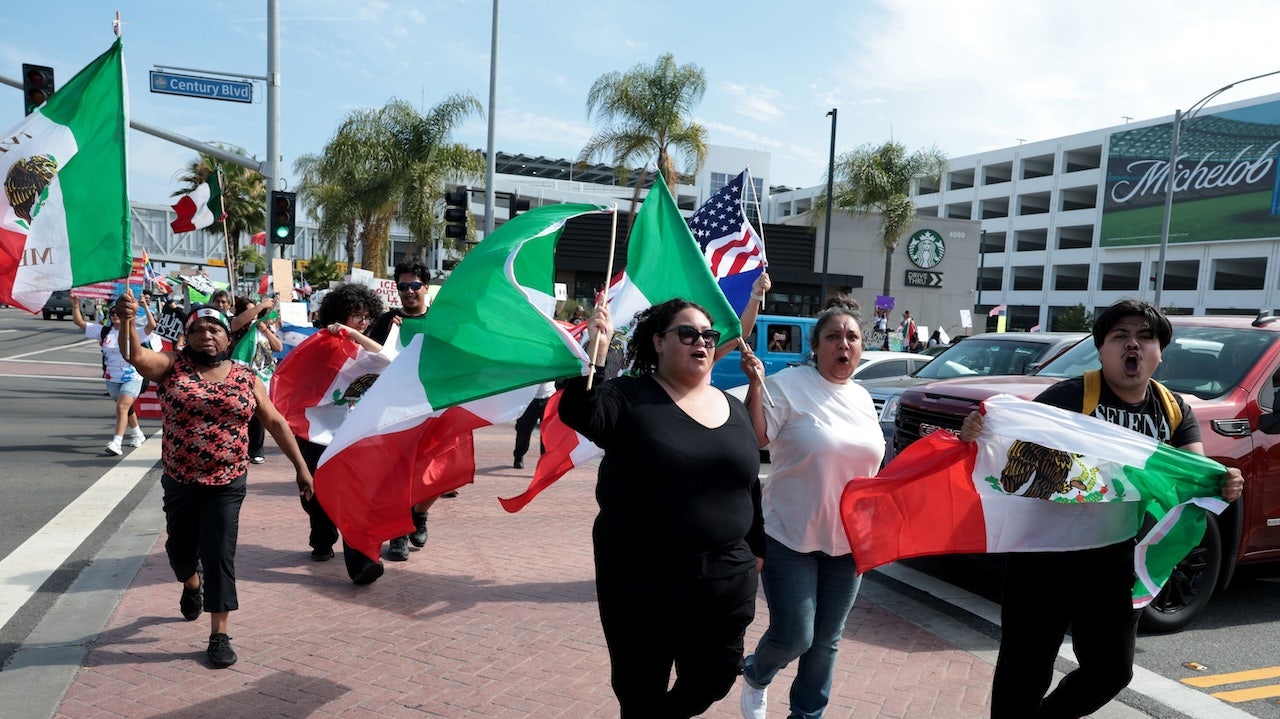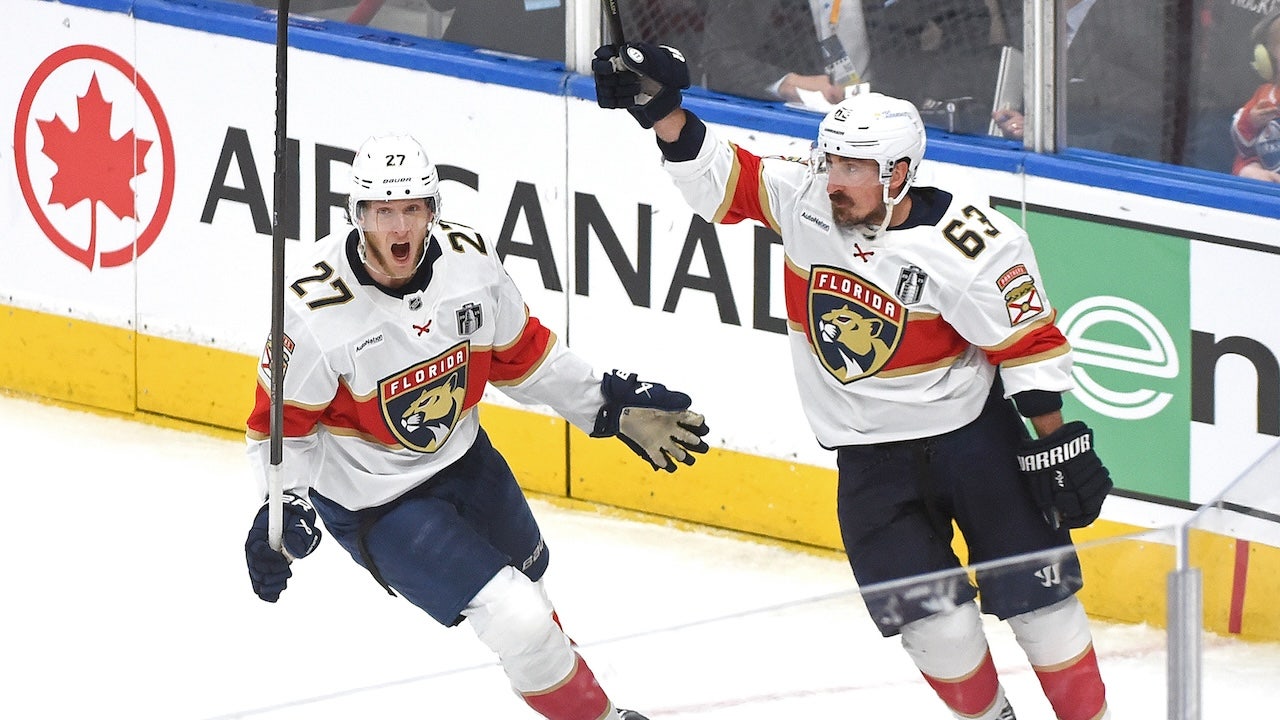Matheson hopes the World Cup will further raise the profile of the women’s game and stimulate new competitions
Diana Matheson, a veteran of four World Cups as a player, knows the platform that the showcase provides for women’s football.
Matheson hopes that attention to the 2023 tournament will be a springboard for Canada’s professional women’s league assembling its Project 8 group, with a scheduled kickoff for 2025.
“For us, it’s a big piece just in terms of awareness. And awareness of women’s football and the growth in women’s professional football and what we’re doing,” Matheson said of the 32-nation tournament, which runs from July 20 to August. 20 in nine host cities in Australia and New Zealand.
“So we’ll definitely try to be visible at the Women’s World Cup while that extra attention and eyeballs are on it, because every time we’ve been able to make a big announcement, really high-quality inbound leads come our way. The Women’s World Cup is another platform where more eyes will be on women’s football and that’s always good for us.”
In April, AFC Toronto City became the new league’s third founding franchise, joining the Vancouver Whitecaps and Calgary Foothills. Matheson’s plan is to launch a league in 2025 with eight teams across two conferences
Company partners already on board include Air Canada, Canadian Tire, CIBC and DoorDash Canada.
Project 8 has already received official league recognition from Canada Soccer.
You only have to look at the US to see the importance of a domestic professional league. Twenty-two of the 23 players on the US World Cup roster play domestically in the National Women’s Soccer League with Lindsey Horan, who along with French champion Olympique Lyonnais is the only exception.
“I think this speaks to the growth of the NWSL specifically over the last 18 months to two years,” said Matheson, who played for four different NWSL clubs during her career.
Matheson points to the players’ collective bargaining agreement that improved standards in the American league, as well as the entry of female-led franchises such as Los Angeles-based Angel City FC.
Nine of the 12 NWSL clubs are represented on the US roster.
In contrast, 13 of the 23 Canadians at the World Cup play their club football in Europe, nine of them in England. Captain Christine Sinclair, captain of the Portland Thorns, is one of eight NWSL players. The other two are American college players.
“It’s been the case for so many World Cups now, when you scroll through the player list and see which club they’re playing for, it’s really only Canada where the majority of their players don’t play at home,” said Matheson. “Hopefully this is the last World Cup we see.”
“That’s definitely our goal,” she added. “I think we can accommodate a good portion of the national team and also many other Canadians who play abroad or who are not yet playing pro. The more exciting thing for me is that hopefully names will appear at that World Cup. roster that we don’t even know about next time coming through the ranks in Canada and we get to know first through his pro league and then we can watch them at the next Women’s World Cup.
World Cups have given Matheson different memories.
In 2019, sidelined by injury, she enjoyed a new role as a TV analyst. She remembers 2015, when Canada lost 2-1 to England in the quarterfinals in Vancouver, as a missed opportunity.
“That one, I think, leaves a bitter taste in all our mouths because we knew the opportunity was there to perform and really compete to win a World Cup at home,” she said. “And we just haven’t achieved the level of performance to get there.”
The Canadians failed to progress from the group stage after losing all three appearances at the 2011 tournament in Germany under Italian coach Carolina Morace. Canada was outscored 7–1 by France, Germany and Nigeria to finish 16th and last.
“That was heartbreak, but I think in some ways it was the catalyst that led to 2012,” Matheson said, referring to the London Olympics bronze medal under John Herdman. “I think it made us focus a lot more on what to do, especially when John came in.”
Matheson says the 2003 fourth-place finish in the US, with Norwegian coach Even Pellerud at the helm, holds a special place in her heart. It was her first World Cup and first year in the Canadian team. After beating China 1-0 in the quarter-finals, Canada lost 2-1 to Sweden in the semi-finals and 3-1 to the USA in the third.
“We came fourth, used to play Route 1 football, direct football. The midfielders mostly played defensively and tried to win the ball and then get it to the forwards quite quickly,” she said. “But it worked. And we almost squeaked through to a final.”
“I have such fond memories of that team,” she added. “That was a team like London, like Tokyo (where Canada won Olympic gold in 2021) where you really had a core group of fantastic veterans who set the tone — Charmaine Hooper, Andrea Neil, Silvana Burtini, so many others — and these really young hungry group of kids comes with Sinc (Christine Sinclair), myself, Erin McLeod.”
Canada failed to progress from the group stage in China in 2007 under Pellerud, conceding a goal in the 92nd minute in a 2–2 draw with Australia that left the Canadians unable to continue. Sinclair had scored in the 85th minute to give Canada the lead.
Matheson recently received her MBA from the Smith School of Business at Queen’s University. She has also completed UEFA’s Executive Master for International Players (MIP), a 20-month program designed to equip top international players with the tools needed to transform their playing prowess into effective management skills off the pitch.
The franchise fee for the proposed new women’s league is $1 million with an estimated $8 million to $10 million in total capital invested over the first five seasons, in addition to necessary infrastructure expenditures. Owners buy a piece of the league and their own franchise.
Project 8 Sports Inc. was founded by Matheson and Thomas Gilbert.
Matheson’s impressive playing career included the stoppage time goal that gave Canada a bronze medal at the 2012 London Olympics. She won 206 caps for Canada (including 193 starts) from 2003 to 2020.
This report from The Canadian Press was first published on July 17, 2023.


